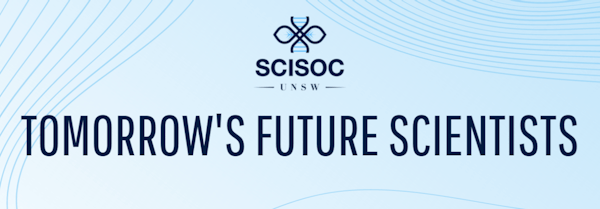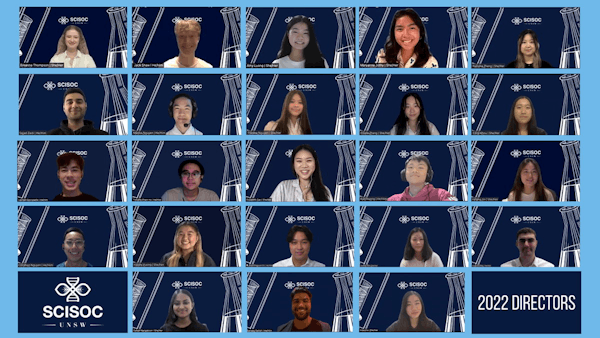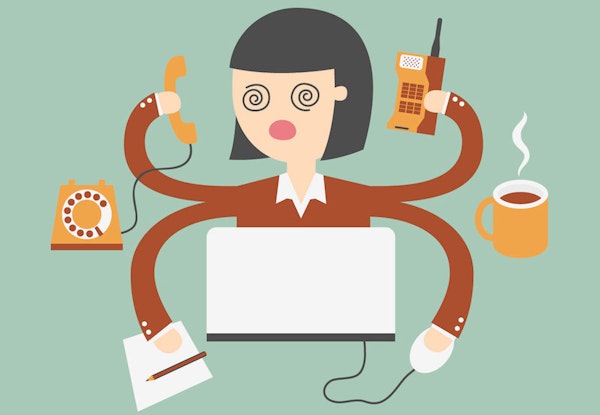Welcome back to PRISM, the SCISOC newsletter! In this week's newsletter, we present to you our incoming 2022 Director Team! In our Science News, we provide you with everything we know so far about Omicron, and for our Fun Corner, we delve into the science behind why multitasking is a no-go! |
|
|
UNSW Science Society Presents: Director Team 2022 We are proud to formally announce and congratulate the following individuals on their successful election as the 2022 SCISOC Director Team! Marketing - Breanna Thompson, Jack Shaw, Amy Luong, Maryanne Jothy Socials - Lachlan Georgiadis, Timothy Pham Ho, Elizabeth Cao IT/Publications - Bud Truong, Helena Jin, Christian Nguyen, Hayley Vuong Productions - Eddy Nguyen, Jennifer Bui, Jorge Tourikis Human Resources - Oshani Illangakoon, Sairaag Satish, Ivina Liu Externals (Sponsorships) - Sajjad Zaidi, Therese Nguyen Externals (Education) - Marcus Nguyen, Emily Khou Externals (Philanthropy) - Elliana Zhang, Ramona Zheng Congratulations to our new Board of Directors! |
|
|
The World Health Organisation (WHO) has declared a new strain of coronavirus discovered in South Africa “a variant of concern (VOC).” The variant is named Omicron (B.1.1.529) and it was first reported to WHO from South Africa on 24th November 2021, while the first known infection was from a specimen collected on the 9th of November. |
|
|
The variant has so far been identified in South Africa, Australia, Austria, Belgium, Botswana, Canada, Czech Republic, Denmark, France, Germany, Hong Kong, Israel, Italy, Japan, Netherlands, Portugal, Spain, Sweden, United Kingdom. |
| |
|
It's unclear if Omicron is more transmissible (i.e., easier to transfer from person to person) than other variations, such as Delta. The coronavirus' spike protein appears to have a significant number of mutations — roughly 30 — which might alter how easy it spreads to people. At present, it seems that the symptoms associated with Omicron are similar to those associated with other variations of COVID-19. All variations can cause serious sickness or death. It is also unclear whether Omicron infection causes more severe illness than infections caused by other variations, such as Delta. In comparison to other VOCs, preliminary research shows that this variation has a higher risk of reinfection. In practically all of South Africa's provinces, the number of occurrences with this variation appears to be growing. This variation has been discovered at a quicker pace than earlier outbreaks, suggesting that it may have a growth advantage. |
|
|
Currently, the Australian border has been closed to the following countries where the Covid variant Omicron has been detected. Individuals should use established public health and social strategies to lower their risk of COVID-19, such as wearing well-fitting masks, hand cleanliness, physical distance, enhancing interior ventilation, avoiding crowded locations, and being vaccinated. |
|
|
With many of us being in the middle of finals season, we may be frantically trying to cram all of our studies and trying to find the most efficient way to do everything at once. This often leads to multitasking but neuropsychologist Cynthia Kubu, PhD, says we’re hardwired to be monotaskers, which means our brains can only focus on one task at a time. |
"When we think we’re multitasking, most often we aren’t really doing two things at once, but instead, we’re doing individual actions in rapid succession or task-switching," Kubu explains. |
|
|
The key takeaway is that multitasking can hinder our performance. We become less efficient and more prone to make a mistake when our brain is continuously switching gears to bounce back and forth between activities - especially when those tasks are complicated and need our active, undivided attention. When we're doing easy tasks things like walking while listening to music, this may not be as obvious but when the activities are more difficult, attempting to multitask can have a detrimental influence on our life. |
| |
|
Our attention is divided when we multitask and this makes it more difficult for us to focus entirely on one thing. Even with seemingly trivial multitasking activities, studies suggest that people who routinely "media multitask" (such as listening to music while checking email or scrolling through social media while watching a movie) are more distracted and less able to focus their attention, even when they're only doing one thing. |
|
|
It can also hinder our capacity to learn because we need to be able to focus in order to learn. "The more we multitask, the less we really do," Dr. Kubu explains, "because we gradually lose our ability to focus sufficiently to learn." "We don't practise tuning out the rest of the world to engage in deeper processing and learning if we're continuously striving to multitask." |
|
|
And not to mention the added stress that comes with multitasking - another drawback is that attempting to accomplish too much at once makes it difficult to be aware and fully present in the moment, which has a slew of mental and physical advantages. Indeed, many mindfulness-based therapies can benefit individuals suffering from depression, anxiety, chronic pain, and other conditions. So, many facets of our lives might benefit by focusing on one activity at a time, and not multitasking. We as humans are wired to perform best one thing at a time. |
|
|
UNSW Science Society is proud to announce our continued partnership with GradReady through 2021. GradReady provides GAMSAT Preparation courses for anyone looking to pursue Medicine after they graduate.
This process starts earlier than you think, so if you’re studying medical science or just have that passion, check out what they have to offer! |
|
|
| |










